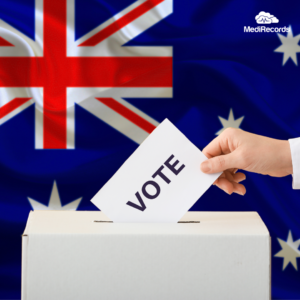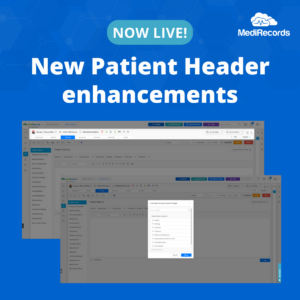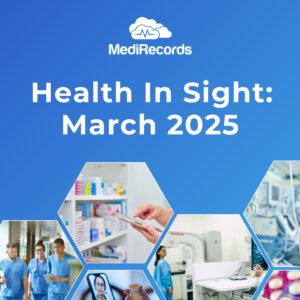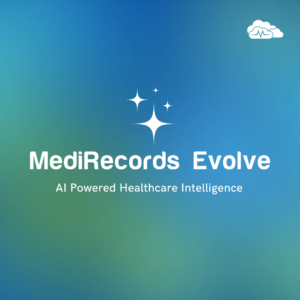November 25, 2024
Health in Sight: November 2024
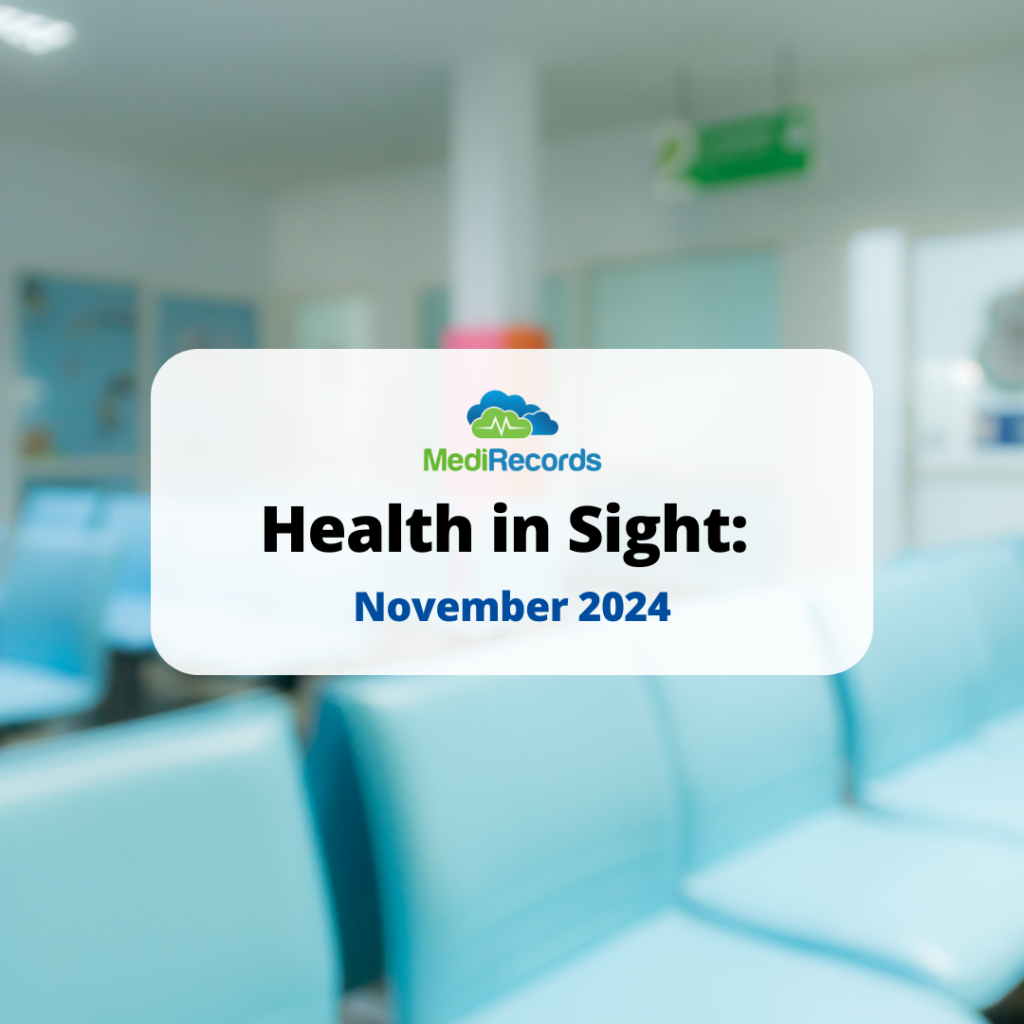
MediRecords reads healthcare news from around the globe so we can be well informed on innovation, developments and decisions that may affect future delivery of care. Here are some of the items that stood out in the inbox recently.
Impatient experiences
A data dump from the Australian Bureau of Statistics has shown some Aussies are delaying or doing without healthcare because they can’t afford it. While two thirds of people surveyed (66.4%) could access their preferred GP when needed, 11% of people in disadvantaged areas had to forgo medication or delay it due to the costs involved. And one in five Australians delayed or did not see a mental health professional because they couldn’t afford it. Significant as it is, this data may underestimate the growing gap in access to care. The Patient Experience Survey only interviewed people aged 15 or older who were usual residents of private dwellings, with the effect that people experiencing homelessness, in temporary or public housing are unlikely to have been counted.
While the overall proportion of people surveyed who delayed or did not use health services when needed fell over the past year, this did not apply for people with long term health conditions, or people living in areas of most socio-economic disadvantage, who were more likely to forgo care.
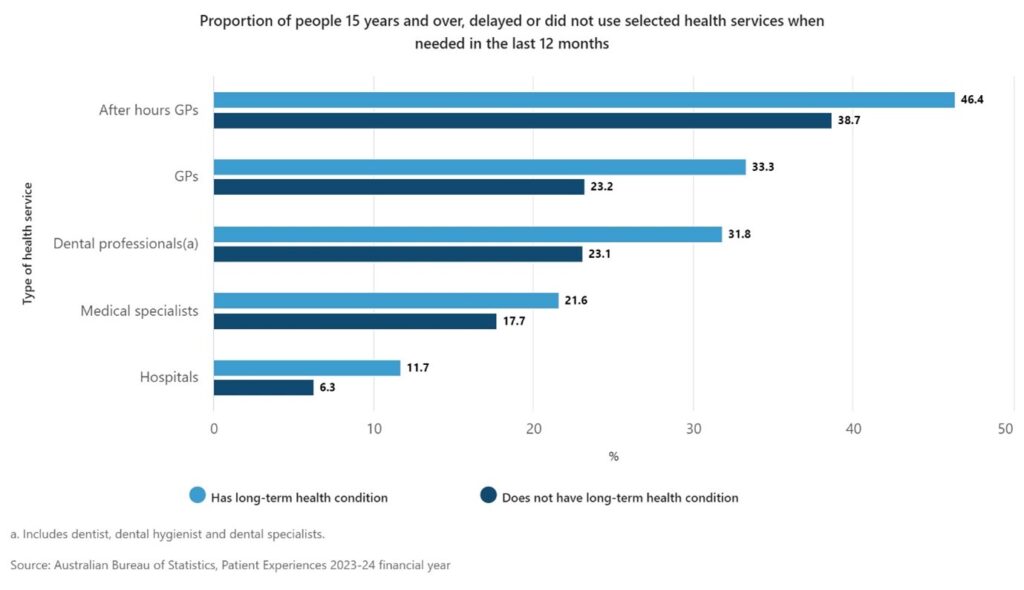
The survey shows GPs remain at the heart of Australian healthcare, with the proportion of people who saw a family doctor up slightly to 82.6% in 2023-24, from 82.3% in 2022-23. In contrast, only 53% saw a dental professional and 39% a medical specialist in 2023-24. Numbers of people seeing a GP for after hours care (5.2%) or urgent medical care (8.8%) were very low, while 15.3% of Australians visited a hospital emergency department in 2023-24. In outer regional, remote or very remote areas, (presumably with fewer GPs and options for after hours care,) 20.4% of people sought care at their local ED.
Significant gender gaps on service usage suggests Australian men do not prioritise their health, with women more likely to present at all the healthcare services listed in the survey. For example, 87.3% of women saw a GP in 2023-24, compared to 77.7% of men. Use of telehealth fell, with the data revealing women are significantly more likely to use telehealth services than men.
To read more of the Patient Experience survey results, go to Patient Experiences, 2023-24 financial year | Australian Bureau of Statistics.
Housing-health linkages
On the subject of doing without, a Victorian Council of Social Service (VCOSS) Health and Energy Hardship project has sounded the alarm that utility bills are no longer affordable for some households, resulting in people living without heating or cooling. VCOSS says energy hardship has demonstrable impacts on health and lists signs for healthcare professionals to watch for here: Health and Energy Hardship | VCOSS
This project is an example of focusing on opportunities to improve health equity, rather than just outcomes data. Cleveland’s Metro Health Institute for Hope recently posted on this issue, suggesting that asking communities how to change health outcomes may be more effective than monitoring distressing data. More detail on the Institute’s logic can be found here: Why health equity’s goal shouldn’t be outcomes
Cultural connections count
With Australian governments generally failing to achieve progress towards Closing the Gap targets for the health and wellbeing of Aboriginal and Torres Strait Islander Australians (see Closing the Gap targets and outcomes | Closing the Gap), fresh approaches are clearly required. Recent University of New South Wales research may be a step in the right direction, with researchers finding that opportunities to practice culture on Country has a positive impact on “stress relief, inter-generational healing, and the journey to overcoming trauma, which in turn had a positive impact on … overall health and wellbeing.” Further details can be found here: The role of culture and connection in improving Aboriginal health :: Hospital + Healthcare
Season for change
The man who puts the flavour in demographic data, Bernard Salt, has added to the growing body of commentary suggesting the future of Australian Healthcare is in our own homes. Mr Salt told a Perth symposium that healthcare is about to be hit by the “baby boomer freight train” and “we will see the care sector redefined, re-imagined and repurposed” by this numerically and financially influential sector of our population. Health Services Daily reported the respected Mr Salt saying: “They will make it clear how their care should be delivered and the vast majority will want in-home care.” (Read more here: https://www.healthservicesdaily.com.au/future-of-care-is-in-the-home-salt/21895)
Spending to save
Whether you call them DNAs (Did not attend) or FTAs (failed to attend), a no show for a medical appointment means lost revenue and longer waitlists for patients who could have utilised the available timeslot. A partnership between Uber Health and Veteran Affairs in the US has made it easier for people to attend medical appointments by removing transportation as a reason for non-attendance. Veterans Health Administration report that 1.8 million appointments are missed annually due to transportation hurdles. Since inserting the Uber option, they say attendance has risen significantly, saving an estimated $196.7 million in missed appointments. (See VA finds medical transportation fix with Uber Health | TechTarget)
MediRecords at the coalface
As an access-anywhere cloud software system purpose-built for multidisciplinary care, MediRecords is used in a multitude of ways in Australian healthcare. These include use by paramedics; a remote mining camp; street, clinic and hospital care for people experiencing homelessness; Aboriginal health services; telehealth businesses; virtual emergency departments; alternative medication businesses and many more. Please reach out to us if you have a unique or innovative use of MediRecords you would like to showcase.
Tim Pegler
Senior Business Development Manager
- Health In Sight: April 2025 - 01/05/2025
- Now Live: New Patient Header enhancements - 09/04/2025
- Health In Sight: March 2025 - 27/03/2025

